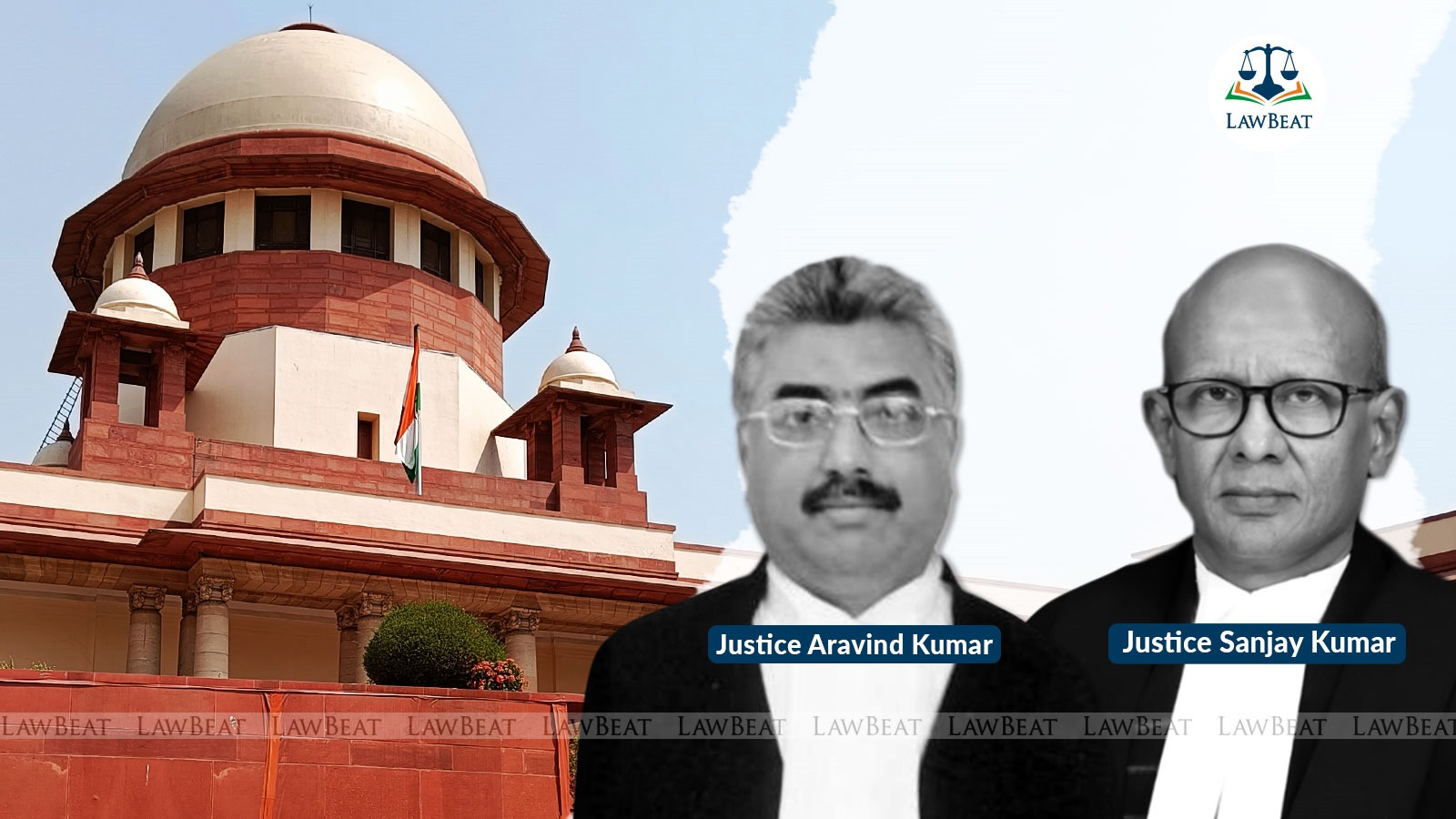Court can't convict one, acquit another on similar, identical evidence: SC

SC bench said the prosecution had failed to place on record any evidence to prove that appellant had any previous knowledge of accused number one was already possessing a passport
The Supreme Court recently observed that the court cannot convict one accused and acquit the other when there is similar or identical evidence pitted against the two accused persons.
A bench of Justices Sanjay Kumar and Aravind Kumar acquitted a woman Yogarani, who ran Kamatchi Travels, by allowing her appeal against the judgments which held her guilty of Section 420 IPC read with Section 12(2) of the Passports Act, 1967 and sentenced her to one-year rigorous imprisonment for each of the offences to run concurrently.
According to the CBI, the appellant along with other accused had wrongfully and illegally facilitated an accused to obtain second passport after his first passport was deposited by the employer in Dubai.
All other accused except the appellant and accused number one, J Joseph and an upper division clerk, were acquitted by the Special Court in Madurai. The CBI did not prefer an appeal.
Also, the Madras High Court allowed the appeals by two other convicts, which was not challenged by the CBI.
The present appellant's counsel submitted that her conviction alone was not sustainable for more than one reason. Firstly, when the other accused who were charged for similar offences had been acquitted of all the charges and no appeal having been filed challenging their acquittal and when the accused No 1 for whose benefit the alleged second passport had been issued, had been acquitted by disbelieving the story of the prosecution.
Going by the facts of the matter, the bench noted that the prosecution had failed to place on record any evidence to establish as to the how the passport kept in the safe custody had gone missing and in what manner it was handed over to the appellant or appellant in turn having returned the same back to Passport Office by post. Thus, for lack of direct evidence the accused No.3 and 4 have been acquitted, it said.
"The court cannot convict one accused and acquit the other when there is similar or identical evidence pitted against two accused persons," the bench said, relying upon the case of Javed Shaukat Ali Qureshi v State of Gujarat (2023).
The court also pointed out that there was no direct incriminating information emanating from the evidence.
"It is pertinent to note that with regard to signature found in passport application, no opinion was given by him as to who signed the same... This court in catena of decisions has held that, without independent and reliable corroboration, the opinion of the handwriting experts cannot be solely relied upon to base the conviction," the bench said.
The court also said that it was needless to state that burden was on the prosecution to prove that the appellant had knowingly furnished false information or suppressing known material information with the intent of securing a passport or travel document to a person and thereby had abetted in the commission of offence punishable under Section 12(1) and thereby punishable under Section 12(2) of the Passports Act.
"In the case on hand the prosecution failed to place any evidence to prove that the appellant had prior information of accused No one was already possessing a passport or knowingly had furnished false information to the passport authorities namely after knowing that accused No one had possessed or holding a passport was applying for second passport or having known the fact of accused No one possessing the passport was applying for the second passport and thereby there has been suppression of material information," the bench said.
In other words, the court said that the prosecution had failed to place on record any evidence to prove that appellant had any previous knowledge of accused No one was already possessing a passport.
"In the absence of any cogent evidence placed in this regard and accused Nos. 1 and 3 to 5 having been acquitted of the offences alleged, the conviction and order of sentence imposed against the appellant alone cannot be sustained or in other words it has to be held that prosecution had failed to prove the guilt of the appellant beyond reasonable doubt," the bench said.
The court thus set aside judgment of the trial court and the High Court of Madras at Madurai Bench and acquitted the appellant.
Case Title: Yogarani Vs State by The Inspector of Police
